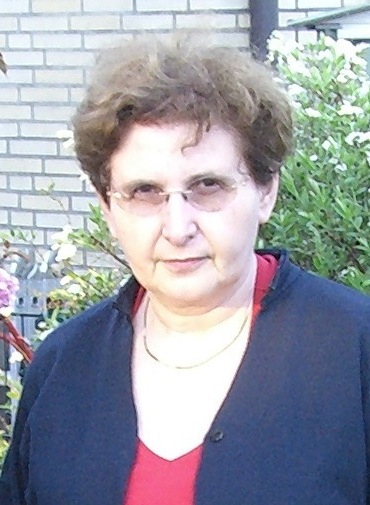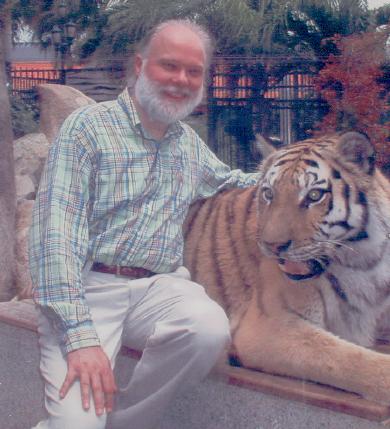CogSIMA 2018 will feature the following tutorials, which are complimentary for all registered CogSIMA participants:
Tutorial 1: Information Quality in Human-Machine Integrated Environment
Instructor: Dr. Galina Rogova, The State University of New York at Buffalo, USA
Time: Monday 11 June 2018: 09:00-12:00
Abstract: Situation awareness in complex dynamic environment requires contextual understanding and interpretation of the events and behaviors of interest, which can be achieved by building a dynamic situational picture. The process of building such picture involves gathering and fusing a large amount of multimedia and multispectral information coming from geographically distributed sources to produce estimates of objects and their characteristics, and gain knowledge of the entire domain of interest. Information to be processed and made sense of includes but is not limited to data obtained from sensors surveillance reports, human intelligence reports, operational information, and information obtained from open sources (internet, radio, TV, etc.). Successful processing of this information may also demand information sharing and dissemination, and action cooperation of multiple stakeholders. Such complex environments call for an integrated fusion based human-machine system, in which some processes are best executed automatically while for others the judgment and guidance of human experts and end-users are critical.
The problem of building such integrated systems is complicated by the fact that data and information obtained from observations and reports as well as information produced by both human and automatic processes are of variable quality and may be uncertain, unreliable, of low fidelity, insufficient resolution, contradictory, and/or redundant. The success of decision making in complex fusion driven human-machine environments depends on the success of being aware of, and compensating for, insufficient information quality at each step of information exchange. Thus quality considerations play an important role at each time when raw data (sensor reading, open source, database search results, and intelligence reports) enter the system as well as when information is transferred between automatic processes, between humans, and between automatic processes and humans.
The tutorial will discuss major challenges and some possible approaches addressing the problem of representing and incorporating information quality into fusion processes. In particular, it will present an ontology of quality of information and identify potential methods of representing and assessing the values of quality attributes and their combination. It will also examine the relation between information quality and context, and suggest possible approaches to quality control compensating for insufficient information and model quality.
Intended Audience: This tutorial is intended for both researchers and practitioners from a wide variety of fields such as communication, intelligence, business processes, personal computing, health care, and databases, who are interested in understanding information quality problems in the complex human-machine integrated environment, and building methods for dealing with these problems.

Instructor's biography: Dr. Rogova is a research professor at the State University at Buffalo as well as an independent consultant (DBA Encompass Consulting). She is a recognized expert in information fusion and decision making, and lectured internationally on this topic. Her other research expertise includes reasoning under uncertainty, information quality, machine learning, and image understanding. She has worked on a wide range of defense and non-defense problems such as situation and threat assessment, information quality in information fusion, computer-aided diagnosis, and understanding of volcanic eruption patters, among others. Her research was funded by multiple government agencies as well as commercial companies. She published numerous papers and co-edited 6 books. Currently, she is co-editing a Springer book entitled "Information Quality in Information Fusion and Decision Making." She served as a committee member, session chair and organizer, and tutorial lecturer for numerous International Conferences on Information Fusion. Dr. Rogova was a member of organizing committees of multiple NATO ASI and NATO ARWs on information fusion and decision support.
Tutorial 2: Experiences in Technology Transition for Human System Capabilities
Instructor: Scott Fouse, Independent Consultant, USA
Time: Monday 11 June 2018: 09:00-12:00
Abstract: This tutorial is focused on the challenges of effective technology transition for Human Systems capabilities, ranging from platform associates, scheduling systems, and distributed collaboration for situational awareness.
The tutorial will be organized into 5 sections. The first section will provide an overview of the instructors experience with technology transition and preview the projects that will be covered. The second section will focus on the experiences and lessons learned from a project called Pilots Associate. This was an early attempt to apply Artificial Intelligence to create an automated intelligent back seater for a single seat fighter aircraft. This project went from 1985 to 1990. The third section will cover another project, DART. DART was a project that occurred from Sept to November 1990, during operation Desert Shield. This project applied AI technology to the problem of developing and analyzing military deployment plans. The fourth section will cover the third and final project, Command Post of the Future (CPOF). CPOF was a project that ran from 1997 to 2007. The goal was to apply the most advanced human systems technology to revolutionize a military command post. The result of this project was deployed to Iraq in 2004, and became the primary command and control system for all forces in Iraq and Afghanistan.
For each of the three projects, the tutorial will include samples of the artifacts used to support both the development and the transition.
The last section of the tutorial will draw from all three project experiences to present some guidelines for organizing and executing technology development and transition efforts. In addition, as all three of these projects had an element of advanced information technology and AI to support human decision making, the instructor will provide some thoughts on how to approach the general challenge of creating advanced tools to support human decision making.

Instructor's biography: Scott Fouse has had a significant career focused on developing and transitioning advanced human systems technology. Most recently Mr. Fouse was Vice President of Research for Lockheed Martin's Advanced Technology Center, which was primarily focused on developing technologies to support Lockheed Martin Space. Prior to that he was the Director of the Lockheed Martin Advanced Technology Laboratories. This group focused on a broad range of information technologies, including Artificial Intelligence, Robotics, and Decision Support. Prior to Lockheed Martin, Mr. Fouse was president and CEO of ISX Corporation, a small company focused on Intelligent Systems applied to national security needs. Mr. Fouse is currently a member of the International Academy of Astronautics, an Associate Fellow of the American Institute of Aeronautics and Astronautics. He has served as a member of the Air Force Scientific Advisory Board and has also served on studies for the Defense Science Board.
Tutorial 3: Uncertainty and Indeterminacy in Formal and Informal Inferencing
Instructor: Dr. Alan Steinberg, Independent Consultant, USA
Time: Monday 11 June 2018: 13:30 - 16:30
Abstract: Eleanor Duckworth defines learning as a process of making increasingly subtle mistakes [Eleanor Duckworth, The Having of Wonderful Ideas: And Other Essays on Teaching and Learning, Teachers College Press, 2006.].
This tutorial relates the concepts of uncertainty as employed in three realms: classical physics, quantum physics and human behavior.
Classical physics is the realm of most macroscopic science and engineering, to include the disciplines of data fusion, target tracking and recognition. It assumes a world of discrete and persistent objects, mechanistic causal dynamics, conditionally independent measurements and uncertainty captured by Fisher likelihood and Bayesian probabilities. Deductive and induction logics and abductive modeling are used to understand and predict observations. Observations are assumed to correspond, via causal transforms, to world states.
In contrast, the quantum revolution of the early 20th Century postulates a counter-intuitive world of fields perturbed by four forces, with fundamental indeterminacy and violations of spatio-temporal causality via, e.g., entanglement and time reversal. Under some interpretations, observations actually determine the observed states.
Finally, people in their ordinary behavior deal with the uncertainties of the world not in terms of classical or quantum physics. Cognitive Psychology has identified several specific heuristics that people use in comprehending and operating in an uncertain world. Heuristics of similarity, availability and anchoring lead to characteristic biases and are susceptible to systematic errors. Deceptive techniques that exploit these biases will be discussed, with examples from stage magic, "fake news", military and cyber deception.
As with quantum physics, the naïve human world-view includes entities and notions that are difficult to reconcile with those of classical physics. The classical notion of discrete, persistent objects is expanded to include ideas of the self. Classical causality is violated by notions of free-will. These notions can include ideas of souls, spirits and divine intercession. The subconscious workings of the mind can be as inaccessible and unfamiliar as the invisible quantum world. Hence the difficulty of defining and of artificially creating entities with self-awareness and free-will. The institutions of human society - of property, responsibility, laws and morality - are premised on the ineffable notions of self, consciousness and free-will.
We will examine the often-unspoken assumptions in each of these realms: the closed-world and causal assumptions of classical inferencing, the epistemological/ontological entanglement of quantum mechanics, and the notions of identity, self-awareness and free-will in human activity.
We will compare, contrast and inter-relate these diverse uncertainty models and discuss methods to reason across these domains. It will be suggested how closed-world, model-based methods used in classical macroscopic inferencing - e.g. in data fusion and robotics - can be extended to open, poorly-modeled domains. Amusing examples, exercises and puzzles will illustrate the surprising, often paradoxical aspects of these three world views and their interactions in human behavior.

Instructor's biography: Dr. Alan Steinberg is recognized internationally as one of the leading experts in sensor data fusion; with over 35 years' experience as a designer, developer and operational user of major multi-sensor targeting, electronic combat, and intelligence systems.
He is the recipient of the Mignona Award for outstanding achievement in data fusion. He has served on blue-ribbon panels for the US Government to evaluate and recommend technology developments and the restructuring of the Intelligence Enterprise.
He is currently working on concepts and methods in target recognition; adaptive modeling and high-level data fusion. He provides seminars and technical support to fusion developments in the US and internationally.
Tutorial 4: Introduction to Ontologies with Examples and Practical Implications for Situation Management and Decision Making
Instructors: Prof. Kenneth Baclawski & Prof. Mitch Kokar, Northeastern University, Boston, USA
Time: Monday 11 June 2018: 13:30 - 16:30
Abstract: An ontology is a formal structure specifying the types, properties, and interrelationships of the entities that are relevant to a particular domain of discourse. Ontologies are commonly used in a great variety of fields, including artificial intelligence, the Semantic Web, systems engineering, software engineering, biomedical informatics, library science, and financial systems. Some of the problems that ontologies can address include intelligent search, interoperability, integration, reuse of domain knowledge, clarifying meaning, reducing unnecessary complexity, improving agility and flexibility.
In this tutorial, we give an introduction to ontologies with particular attention to formalizing situations. While the term "situation" is commonly used in scientific publications, such as this conference, there are significant differences in the intended meaning. This can lead to misunderstandings among researchers and a lack of interoperability among programs that address situational awareness.
The notion of situation will be introduced at various abstraction levels. First, the problem of situational awareness formulated by Endsley, as well as the place of situational awareness in the JDL Data Fusion Model, will be presented. Then, the Situation Theory of Barwise, Perry and Devlin will be formalized using an ontology called the Situation Theory Ontology (STO). Finally, it will be shown how computer programs can make use of such a formalization for achieving situational awareness and decision making.
Intended Audience: The intended audience for this tutorial consists of both researchers and practitioners who want to achieve a better understanding of ontologies, situational awareness and situation management. The participants are expected to have some basic knowledge of formal logic. The participants will learn basic ontology engineering techniques using the major ontology representation languages; how situations can be formalized in logical terms; how to use general reasoning/inference engines to monitor or query situations; and how situations can be used within a general decision making process.

Instructor's biography: Dr. Kenneth Baclawski is an emeritus professor of Northeastern University. Professor Baclawski's primary research area is data semantics. Some of the areas that he has contributed to include situation awareness, information fusion, self-aware and self-adaptive systems, formal methods for software engineering and software modeling, data mining in biology and medicine, semantic collaboration tools, and wireless communication. He is the inventor of 10 patents. He has authored over 250 professional articles. He has served on numerous peer review panels for the National Science Foundation, the National Institutes of Health, and the Association for Computing Machinery and has served on many program committees of research conferences. He has served as a consultant to companies and government laboratories, and has edited and written several books and research monographs.

Instructor's biography: Mieczyslaw "Mitch" M. Kokar is a Professor in the Department of Electrical and Computer Engineering, Northeastern University in Boston. He received his M.S. in computer engineering and Ph.D. in computer systems engineering from Wroclaw University of Technology, Poland. He is an active researcher in Information Fusion, Cognitive Radios, Ontologies, Self-Controlling Software and Modeling Languages. Dr. Kokar's interest in Information Fusion is in the application of formal methods to situation awareness. He has authored and co-authored over 190 journal and conference papers. He is on Editorial Board of Journal of Information Fusion (Area Editor for Information Fusion Theory) and Program Committee member of numerous conferences. He is a senior member of IEEE and ACM.





